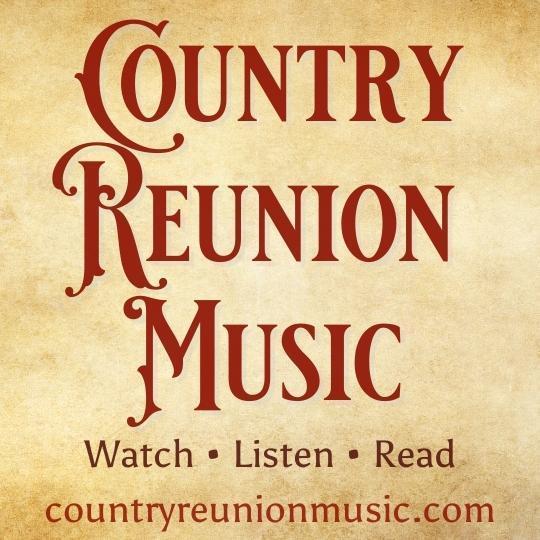Over the past 10+ years of researching and writing for Country Reunion Magazine, we’ve noticed that many of country music’s greatest singers, musicians and songwriters have struggled with alcohol addiction, and alcohol has long been a recurring theme in country music. As part of the Music and Mayhem series, Country Reunion Magazine decided to explore this topic, not as a judgment but as an observation.
While alcohol is not the only theme in country music, it is a prevalent topic that reflects the experiences and culture many people who enjoy the genre. Country music often tells stories of hardworking, blue-collar individuals who enjoy spending their free time drinking and socializing with friends. Country music has its roots in rural areas, where gathering at bars or honky-tonks were often the primary forms of entertainment. Additionally, alcohol can be associated with various emotions such as joy, sadness and heartbreak, all of which are common themes in country music.
Some of classic country music’s best-known songs have alcohol as a theme. For example, “There Stands the Glass” by Webb Pierce is about a man who tries to drown his sorrows in alcohol after a breakup. “The Bottle Let Me Down” by Merle Haggard tells the story of a man who turns to alcohol to cope with the pain of a failed relationship. “I Like Beer” by Tom T. Hall is a lighthearted celebration of the joys of drinking beer. Roger Miller’s “Chug-a-Lug” features a group of friends who enjoy drinking beer and having a good time.
Several songs from the last 30 years have presented a variety of views on alcohol. “Drinkin‘ Problem” by Midland is about a man who realizes he has a drinking problem and is trying to overcome it, while Vince Gill sang in “One More Last Chance” about a man who keeps getting into trouble because of his drinking but keeps getting “one more last chance” to change his ways before his relationship is forever ended.
The tragic story of a couple whose relationship falls apart due to their drinking habits is told in the poignant “Whiskey Lullaby” by Brad Paisley and Alison Krauss. In contrast, Paisley’s song “Alcohol” is a tongue-in-cheek ode to the power of alcohol and its ability to make people do crazy things. “Tequila Makes Her Clothes Fall Off” by Joe Nichols is a humorous take on the effects of tequila on a woman’s inhibitions. “Friends in Low Places,” a perennial karaoke favorite, by Garth Brooks is about a man who has been left by his lover and decides to drown his sorrows in a bar with his friends.
Many of country music’s beloved performers have recorded popular songs about alcohol, yet they struggled with the negative impacts of alcohol on their personal lives.
Johnny Cash’s “Sunday Morning Coming Down,” written by Kris Kristofferson, is about a man who wakes hungover up on a Sunday morning and regrets the choices he made the night before. Cash struggled with alcohol and drug addiction for much of his life, and it was a major factor in his declining health and career in the 1980s. He eventually entered rehab in the late 1980s and was able to overcome his addiction.
“Whiskey Bent and Hell Bound” by Hank Williams Jr. is about a man who enjoys drinking and partying despite the consequences. Williams has had a long history of alcohol and drug abuse, which has led to a number of legal problems and health issues, but he has been able to manage his addiction and remains active in the music industry. His son, Hank Williams III has had his own battles with sobriety and has sought treatment in an effort to overcome addiction.
George Jones’ recording of “White Lightning” was a humorous take on moonshine and its effects. What was not humorous was Jones’ own history of alcohol and drug abuse. He struggled with addiction for many years and even missed performances due to his drinking. However, he eventually got sober and remained clean and sober for the last few decades of his life.
Among the country performers who struggled with addictions that landed them in legal trouble was Glen Campbell, whose alcohol and drug abuse led to a number of legal and personal problems, including an arrest for DUI and hit-and-run in 2003. He eventually sought treatment and was able to maintain his sobriety for the rest of his life.
Billy Joe Shaver had multiple arrests for DUI and other alcohol-related offenses throughout his career. Following professional treatment, he remained sober until his death in 2020.
Randy Travis was also arrested multiple times for DUI, including a high-profile incident in 2012 where he crashed his car while drunk. David Allan Coe has had a number of legal problems throughout his career, including multiple arrests for DUI and other offenses related to his alcohol and drug use. Tracy Lawrence was arrested for DUI in 1996 and again in 1998.
Female stars are not immune to the pull of addiction. Tanya Tucker, who became a successful recording artist while still a teenager, faced addictions that had a negative impact on her career in the 1980s and ‘90s until she sought treatment and became in the mid-1990s. Wynonna Judd’s addiction became news in the 2000s, but through treatment, she has been sober since 2007.
Sadly, alcohol contributed to the death of two country music pioneers.
Legendary country singer and songwriter Hank Williams Sr., one of the founding fathers of modern country music struggled with alcohol addiction throughout his career. He often drank heavily before and during performances, which affected his ability to perform and his health. He died at the age of 29 due to complications from alcohol and drug abuse.
Jimmie Rodgers was another early pioneer of country music who struggled with alcohol addiction. He often drank heavily and was known to be an excessive party-goer. He died at the age of 35 due to complications from tuberculosis, which was likely exacerbated by his alcohol abuse.
One of the most talented country stars from a more recent era who lost his life to alcoholism was Keith Whitley, who died at age 34 in 1989.
“I learned to do things the way the old-timers did it,” Whitley told The Chicago Tribune. “I thought everybody had to drink to be in this business. Lefty drank, Hank drank, George Jones was still drinking, and I had to. That’s just the way it was. You couldn’t put that soul in your singing if you weren’t about three sheets in the wind.”
Despite these defeats, many country stars have overcome addictions to live productive lives that have contributed greatly to the enjoyment of their fans.
By Claudia Johnson

